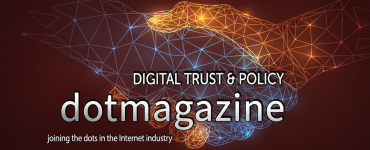How can Europe act sovereignly in a globally dominated digital economy while remaining innovative, open and competitive? Alexander Rabe, Managing Director of eco – Association of the Internet Industry, addresses this question in his contribution to the Digital Sovereignty Forum by Table.Media.
His central argument: Digital sovereignty is not about demarcation – it’s about the power to shape. It does not mean autarky or isolation, but rather the ability to use technologies in a self-determined and legally secure manner.
“Data is the crucial foundation for innovation. The key lies in its targeted and legally secure use,” says Rabe.
A particular focus is on handling open systems and interoperable software solutions. According to Rabe, these create the necessary flexibility and resilience to reduce digital dependencies – without losing access to global innovation networks.
Digital sovereignty remains a flexible concept
How diverse the understanding of digital sovereignty is in practice is illustrated by the current eco Industry Pulse, a quarterly survey of IT decision-makers in Germany:
- Over 60% of those surveyed primarily understand digital sovereignty as freedom in choosing providers and software solutions.
- 9% associate it with autarky and technological isolation.
- 18% do not want to clearly assign themselves with either definition.
- 13% answered “Don’t know”.
Rabe therefore advocates for a European approach to digital sovereignty that focuses on open standards, data availability and legally compliant use – thus creating the foundations for sustainable digital value creation.
You can read the full German-language article in Table.Briefing here: https://forum.table.media/forum/tableforum-digitale-souveraenitaet/digitale-souveraenitaet-europas-weg-in-die-digitale-zukunft




